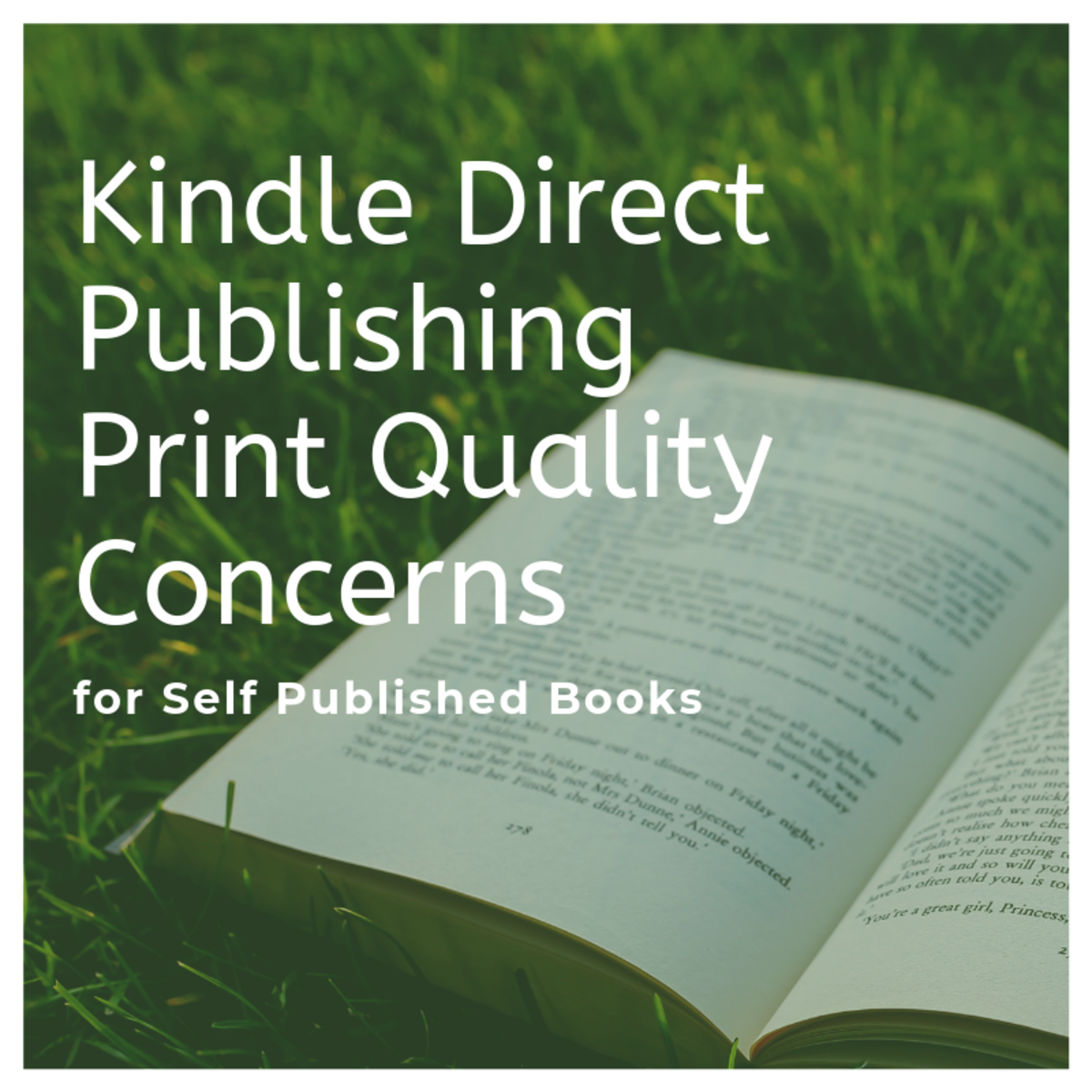Self-Publishing or Not: Publishing Your First Book
Reading Mom's First Book

One of the first questions many people would like to know, when they are about to author their first book, is whether self-publish (“publish on demand”) or use a refutable publishing house. To make the matter even more complicated, there are plethora of pros and cons articles regarding self-publishing on the internet. Most of the pro articles argue how today’s online publication will help eliminate the long and arduous process of traditional publishing, starting from the rejection or acceptance of the manuscript, signing the contract, and the subsequent arduous and repetitious process of editing, revising, proofing, more editing and more proofing, and printing—cutting, folding, assembly, binding, binding methods, covers, cover art/photo, and in-line finishing, not to mention the sales and marketing of the book.
These articles often drop a few names of allegedly self-published millionaire authors. Of course, there are exceptions in all things. There could be a handful of such self-published millionaire authors in the world, no doubt. Look around your neighborhood or in your circle of friends, or even in your entire city and state: how many such self-published millionaire authors do you see? The rarity of this situation is analogous to finding one star athlete in a professional league who has come out of thousands of high school and college athletes; certainly while they were playing, they have heard they could be the one. The odds are, in fact, slim to none. There are, however, exceptional situations for self-publication, especially for non-academic books. All in all, publishing through a refutable publishing house is still more desirable in the long run thanks largely to its well-established quality control.
When to Self-Publish
Here are some exceptional situations when self-publication will work better than using a well-established publishing house.
- Self-Publish for a Niche Market: Self-publication will work for a niche market, a narrowly defined specialty market of all sorts. When you want to publish your genealogy book, for example, you can self-publish your book for a niche market as no one other than your immediate kinfolks will be interested in knowing about your genealogy. You can market your book to your grandparents, uncles, aunts, nephews, nieces, in-laws, and others kinfolks related to you. Let’s say you are a beekeeper and you have found out an effective and efficient way to get rid of Small Hive Beetles (SHB), a serious pest in the south. Many beekeepers affected by this pest would like to know how you have done it, for example. You can self-publish a small booklet explaining your methods and techniques, exploiting the niche market, for example.
- Self-Publish for a Small Circulation: Imagine you are an employer with a small number of employees and you often felt the need to have a well-written procedural/operational manual or an employ handbook to increase the overall performance of your workers. The book you will be publishing will be circulated largely among your employees. If you plan on publishing only a small run for a limited audience in a niche market like this, self-publishing will reduce the cost of publication. As your company grows and as you need to expand your operation, you can print them more on need-basis in the future.
- Self-Publish When Your Subject Matter is Narrowly-Defined: Similarly, if your subject matter focuses on a limited topic, such as “How to overwinter nucleus [nucs] honeybee colonies indoors in Canada,” or, say, “underwater basket-weaving while holding your breath,” you can self-publish your book as the topic is too narrow to be dealt with in a regular-size book. For example, the topic of beekeeping requires a voluminous book to include bee management, bee biology, bee pathogens, marketing bee products, beekeeping regulations, laws affecting bee importing, and planting plants for honey bees, to name only a few. Instead of focusing the beekeeping topic in its entirety, you can only focus on one narrowly-defined area, such as how to market your local honey in the farmers market, for example. To write a Chinese cook book will be demanding; however, you can narrow your topic to “How to Make Delicious Chinese Dessert.” In fact, you can even further narrow the topic to “How to Make Delicious Vegetarian Chinese Dessert.” Such narrowly focused topics are good for self-publication as it eliminates the other subject matters.
- Self-Publish If the Audience Will Be limited: As explained above, self-publication is good when your audience is small. When you publish your genealogy book, for example, you know who will be buying the book: your kinfolks. Many sophisticated software manuals are published for the benefit of a limited audience; similarly, it makes sense to publish a procedural manual for a small company through self-publication. For those who keep honeybees in Oklahoma, you can self-publish a book dealing with “Floral Sources for Honeybees in Oklahoma,” for example. Given the different dates of blooming, beekeepers in other states may not want to use such information, but the limited audience in the state of Oklahoma will benefit from the book.
- Self-publish for a Small Number of Books: When you are writing a book for a niche market with a limited number of audience, your circulation will be small—small enough for you to cover the cost out of your pocket. Self-publication will be a good option in this case.
- Self-Publish If You Are Not Interested in Making a Lot of Money from Your Book: As explained above, another reason for self-publishing will be you are not really interested in making a lot of profit from your book; rather, you want to share your ideas or experience you have gained over the years for the altruistic intention; for example, you know how devastating those Small Hive Beetles are to the beekeepers in the south and how your innovative methods and technique will help them fight the bug.
- Self-Publish If Your Goal is Short-Term: If you are retired and you do not have to worry about your future career, you can self-publish: in such case, the fact that you have self-published out of your own pocket will not jeopardize or weaken your professional credentials or career path. Of course, there are exceptions to this situation; for example, many modern poets, such as Ezra Pound, have self-published in their early writing career.
- Self-Publish If You Want to Own the Copyright Outright: You can keep your copyright when you self-publish, which means you will collect all the loyalties from your book sale.
First Book

Reasons Not to Self-Publish
As illustrated above, self-publishing lacks any measurable quality control: you are the writer, the arbiter, the editor, and the publisher. Because of this lack of quality control, people will, in general, consider your first book not as serious as others that have been published through “official” channel, which often ensures quality-control.
- Do Not Self-Publish If You Are Serious about Your Career: Once you have self-published your book, some reputable journals or periodicals would not even mention the birth of your book, much less offering any meaningful critique on it. In many fields, self-publication is frowned upon as a “vanity press,” a venue in which anybody can publish on just about anything. Typically, to be an author, you will have appeared in national and international conferences, presenting your research and other papers by the time you are ready to author a book: it is not like you have suddenly decided to publish your book overnight. Or by then, you could have appeared in many literary journals or trade magazines, getting awards here and there, establishing your name-brand and presence. Such due diligence will be paid when you receive an unsolicited invitation to write a book from an editor of a reputable publishing house. Simply put, it takes to time to write a good book.
The fact that you have presented many papers, or your works have appeared several times in nationally and internationally recognized venues means you have been screened by independent “peer-reviewers” plenty of time. Furthermore, the fact that you have received an unsolicited invitation from a reputable editor means your quality has been recognized by others: you have proven yourself to be a good business investment for them. Most important, instead of having to pay money to publish your own work, they will foot the bill for your publication because they recognize your quality and they want to invest their resources in you and your book.
- Do Not Self-Publish If You Want to Make Money: Invariably, well-established publishing houses not only offer the publication of your book for free but they will also help you with the marketing aspects of your book: they have this proven machinery that will help you sell your book online and off-line since they have been in business for a long time. They know the ins and outs of the publishing business as their livelihood depends on it. Such assistance means you do not have to push or peddle your own book personally.
- Do Not Self-Publish If You Want Good Independent Reviews: Positive and independent reviews are essential in marketing your book, especially in academic publishing. For example, if you have self-published, your book may not even be picked up by any credible independent reviewers. Why should they? They have other books to review whose quality has been assured by the rigor of quality control explained above. In such scenario, your book is pretty much dead on arrival.
- Do Not Self-Publish If You Need Professional Editing: You may have an earth-shattering original ideas in your book; however, if your writing is not up to professional or industry-standard, the quality of your book will suffer as a result. Refutable publishing houses will offer professional services, such as editing, design, composition, proofreading, and indexing, among others. Not many self-publishing authors are good at all these diverse tasks. There is more to publishing than simply writing a book and dashing it off to a printer.
Publishing First Book









